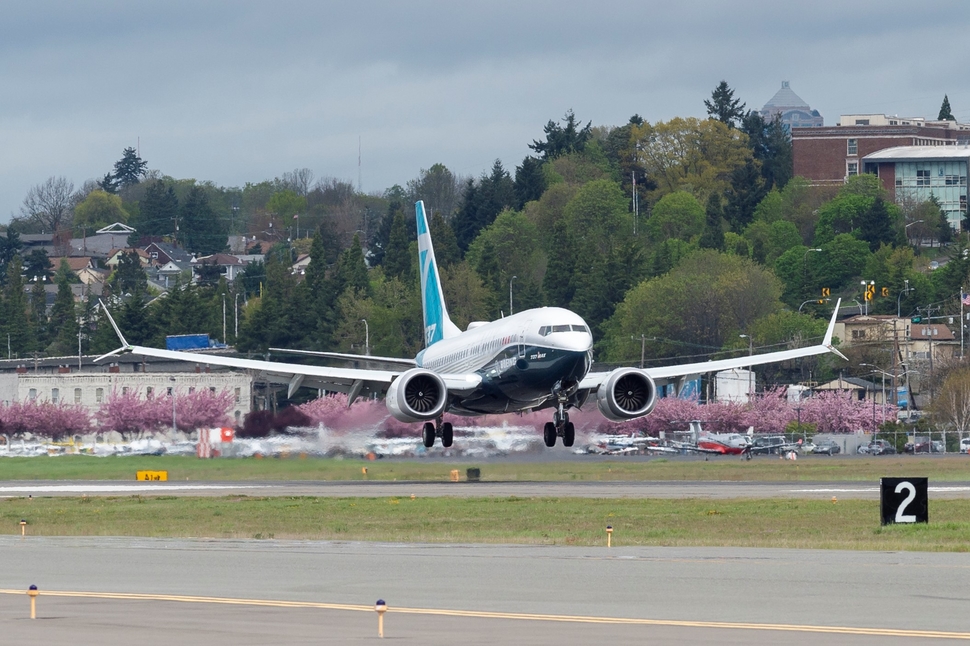As the Boeing 737 Max crisis continues to unfurl – and as its grounding wears on – much has been said about how it impacts airlines.
As the Boeing 737 Max crisis continues to unfurl – and as its grounding wears on – much has been said about how it impacts airlines.
For one, operators around the world have been forced to rethink capacity and schedule plans. Some are keeping older narrowbody aircraft in their fleet for longer, while others are looking to shore up planned capacity increase with second-hand aircraft.
This could turn out to be a potential silver lining for MROs, some of whom have built up years of experience maintaining older 737s and are ready to take on increased heavy maintenance work for these older airframes.

Boeing
FlightGlobal spoke with three MROs in the Asia-Pacific region, all of whom have capabilities, or are building up capabilities, in 737 Max maintenance. Cirium fleets data indicates that in the Asia-Pacific region, there are 136 delivered 737 Max jets and 1,194 on order.
The MROs stress that the grounding is, for now, largely an operational issue. Delays in getting the Max back into the air will naturally mean the aircraft’s maintenance schedules would move to the right too, they add.
Aviation analyst Brendan Sobie from Sobie Aviation concurs, and adds that the bigger indirect impact will be changes in the maintenance schedule of 737NGs.
“Some airlines have adjusted their 737NG maintenance schedule based on the fact they are utilising these aircraft more due to the Max grounding and have delayed the return or phase out of 737-800s,” says Sobie.
Within the Singapore Airlines Group, SilkAir’s Boeing 737-800s were supposed to be handed over to low-cost arm Scoot. However, given the 737 Max grounding, SilkAir, which operated six 737 Max 8s, has had to retain its 737NGs.
This has given rise to postponements in cabin retrofit services for the 737-800s from a two-class product to Scoot’s single-class configuration, says Sobie.
While it is still premature to measure fully the extent and effect the Max grounding has on MROs in the region, the companies confirm that, at least in the interim, there is a silver lining to the grounding.
Indonesian MRO firm GMF AeroAsia is one such example. Its chief executive Tazar Marta Kurniawan is upbeat about the opportunities that the grounding presented. “For an MRO like us, [the grounding] will indirectly benefit us,” he says.
With some of its customers substituting 737 Max operations with older 737NGs, Kurniawan says his company is well-poised to maintain the older jets. “We are already experts in doing that. [That’s the advantage for us]… since they are already mature aircraft, and need more maintenance. We are familiar with it,” he adds.
The 737 Max grounding will also increase demand for the older 737s and, while some airlines will rely on their existing fleet, others might require aircraft from other operators.
“[When] they transfer the aircraft from one operator to another operator, it benefits us, [because] the movement will require a redelivery project,” Kurniawan says.
He notes that GMF AeroAsia has seen an uptick in redelivery projects in the past year, from three in 2018, to about 12 this year. Kurniawan is, however, unable to confirm if the increase in redelivery projects is directly linked to the 737 Max’s grounding.
Still, the MRO firm will have its hands full in the coming year, even as the 737 Max grounding continues.
Lufthansa Technik senior vice-president for corporate sales in the Asia-Pacific region Gerald Steinhoff tells FlightGlobal that the 737 Max’s grounding is more an operational issue now, and that it will not have a significant impact on the company’s strategy.
However, he shares Kurniawan’s view that older aircraft kept for longer is an opportunity to tap.
“On the other hand, [other older] aircraft may have flown a bit longer in the market, and [are needed] in the market, so this is something for us in a more positive way,” Steinhoff adds, noting that “certain aircraft types” will see higher demand from carriers.
ISSUE OF TRUST
However, Chinese MRO firm Ameco’s chief marketing officer Zhu Xiao offers a differing, and rather sobering, perspective to the issue.
While he acknowledges that the grounding will mean more business for the maintenance of older 737s, he says that, on a larger scale, it has had an “intangible effect”.
Zhu explains: “To be honest, [the Max grounding has] damaged our confidence [on] Boeing capabilities.
“Boeing [products were] very good before… but [with] the 737 Max issue… I think confidence in Boeing products has been damaged. I think the feeling of lack of confidence might be spread to other Boeing products.”
LHT’s Steinhoff also alludes to a similar sentiment. As a result of the 737 Max grounding, he says, some LHT customers have “come to us more than in the past”, to ask for inspection services before taking delivery of their aircraft.
“Airlines are a bit worried on the current manufacturing of new aircraft types, and have a closer look at it. They desire a partner like us to accompany them in the process before the aircraft is even delivered,” Steinhoff says.


























